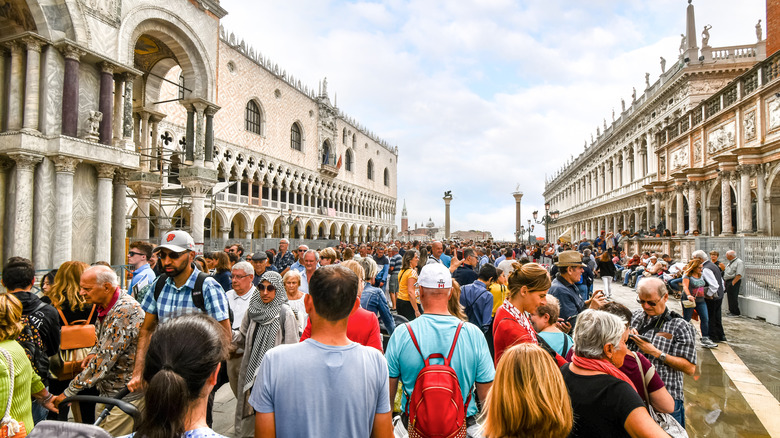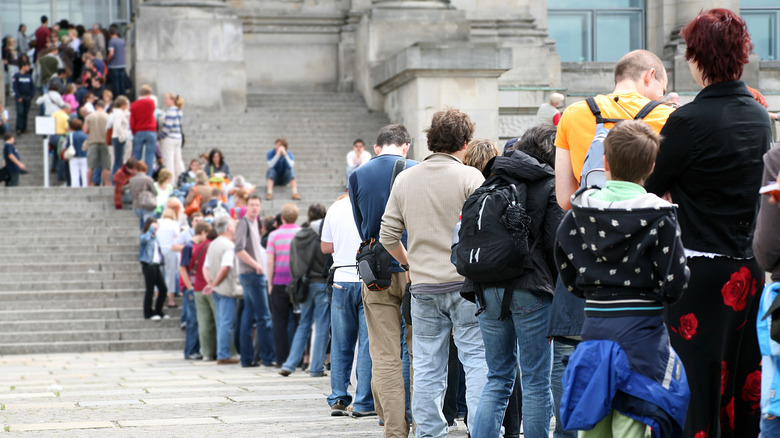Rick Steves Explains The Smart Way And The Stupid Way To Visit Attractions In Europe
While Rick Steves has created a travel industry empire through his PBS show, tour company, and guidebooks, his overarching philosophy is deeper than simple media consumption and traveling just for the sake of saying you've been to some popular places. He wants people to enjoy their trips as much as possible, whether they travel with his company or not. Steves is also aware of the "Rick Steves effect" and wants to help tourists keep their impact on local life to a minimum. Surprisingly, queuing in lines for major attractions plays a role in all of this.
"There are two IQs of European travelers: those who wait in lines, and those who don't," Steves explained in a blog post. Steves' solution is to buy tickets online in advance whenever and wherever possible. Advance tickets are not always required, but some museums and experiences have strict capacity limits. "[T]ake five minutes to go online and book your ticket...or show up, wait several hours, and maybe not get in...Don't be stupid!" Among the places that you should book in advance include the Eiffel Tower in Paris, the Rijksmuseum in Amsterdam, and Galleria Borghese in Rome.
Getting tickets for attractions in advance helps ease crowds
Booking tickets ahead of time helps major attractions better manage crowds. "[M]any of the greatest sights in Europe are attracting more visitors than they can physically contain," Rick Steves explains. If you have something at the very top of your itinerary, but happen to visit on a busy day, already having your ticket can more likely ensure that you will get your turn at these must-visit places and not get stuck in the crowds waiting outside. Booking for times early in the morning can also help you avoid massive crowds later in the day while you're there as well. Sometimes it pays to get out of bed early.
Buying tickets in advance doesn't just help you get access to popular attractions in a more orderly manner, however. Arriving with your tickets in hand or at least knowing how each place on your itinerary moves visitors in and out is a way to help prevent Europe from becoming "anti-tourist." Hordes of tourists blocking up streets and pedestrian areas make it difficult for locals to go about their daily lives. When planning your next trip, remember to keep a guest mentality, or even venture off the beaten path to help disperse tourism crowds to more manageable levels.

